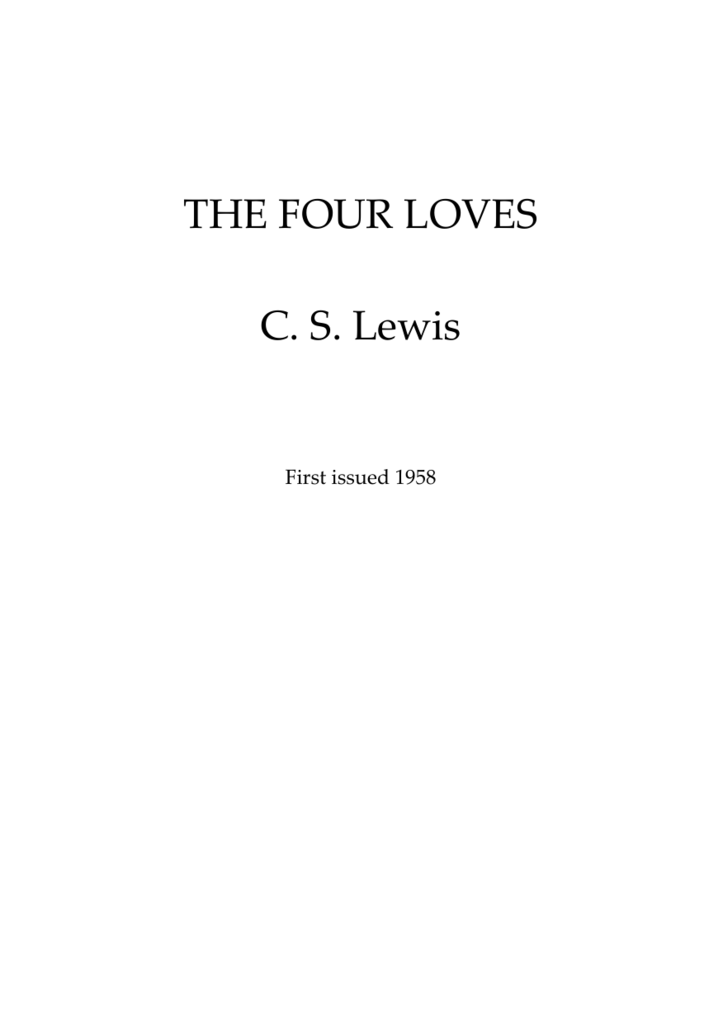
Another point is that Lewis makes some comments about gender and sexuality–including homosexuality and marriage–that sound strange or even troublesome to today’s ears. One is the deeply Christian nature of The Four Loves. Students from other traditions and with other worldviews will need to do some adjusting to get value out of the book. With great students and a strong reading list (see below), it has already promised to be a great semester.īut there are clearly some limitations in the course. Ranging from the ancient world until now, these are the moments where stories of friendship, love, sex, marriage, fidelity, and devotion have intersected with the hinges of history. Lewis’ concept of four loves to structure a course about the great myths at the foundation of our culture. Lewis and Mythologies of Love and Sex.” In this masters-level course, I use C.S. This fall I am teaching at Signum University a class called “ C.S. While there are limitations to the book–it really is a pretty ad hoc exploration of ideas, an expansion of a lecture series and the fruit of a couple of decades of thought–I like the use of different kinds of love enough to build a literature class around it. I still think he says some important and powerful things about friendship, and I think his main thesis is right, that agape love–divine, unconditional love–fills out, lifts up, and perfects all other kinds of natural love. My original review of the book 8 years ago remains one of the top posts on this blog, and I have returned to the ideas again and again.


Lewis’ The Four Loves is a book that is building in popularity.


 0 kommentar(er)
0 kommentar(er)
